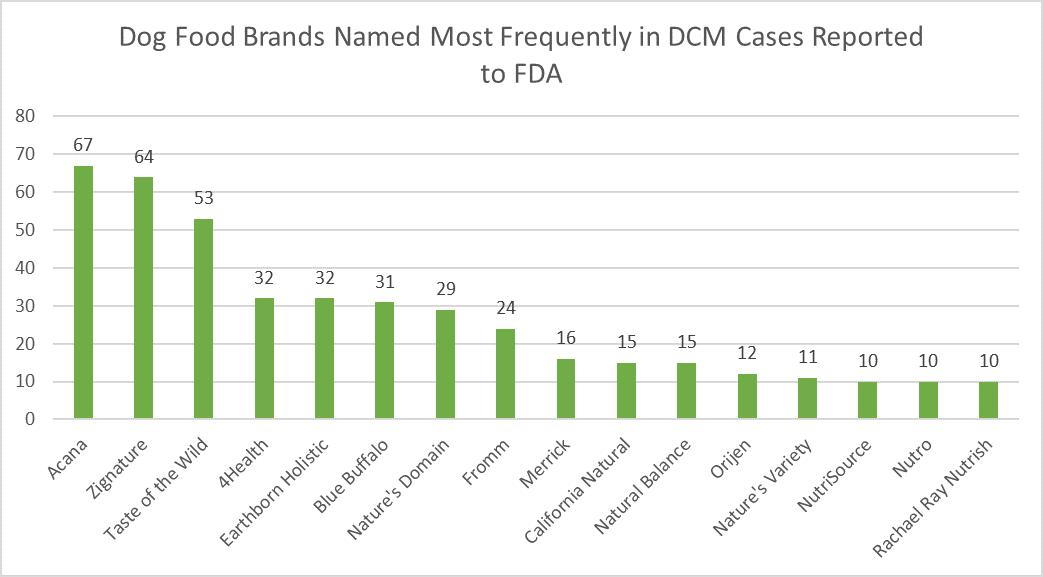For the past year, the FDA has been studying a possible connection between grain-free pet foods and an increasing number of diagnosed cases of canine Dilated Cardiomyopathy (DCM). Some dog breeds are genetically predisposed to DCM, but the FDA began noticing an increasing number of cases in breeds not typically associated with the disease.
Dilated Cardiomyopathy is a serious disease that can ultimately lead to congestive heart failure. The heart becomes enlarged when the heart muscle is unable to contract properly, preventing blood from pumping through the heart as it should. Affected pets often begin exhibiting shortness of breath, coughing, rapid panting, exercise intolerance, and fainting.
The FDA has been gathering data from pet owners and veterinarians of the reported DCM cases. The majority of the affected pets were observed to be eating grain-free diets (90%), consisting largely of peas and/or lentils (93%). The FDA recently released a list of the 16 most commonly reported food brands, with Acana, Zignature, and Taste of the Wild at the top of the list. Commonly fed brands such as Blue Buffalo, Fromm, Merrick, Natural Balance, Nutro, and Rachael Ray also ranked on the FDA’s list.

Product testing is ongoing, but so far the FDA’s testing for minerals, metals, amino acids, and other nutritional contents have been similar for both grain-free and grain-containing foods. No abnormalities have been discovered at this point in time, so research is still in progress. Nearly all of the foods tested contained at least the minimum amounts of amino acids, methionine and cysteine, currently required by the AAFCO (Association of American Feed Control Officials). Dogs typically synthesize taurine from these amino acids. Therefore, the FDA is trying to determine if the occurrences of DCM may be related to taurine metabolism. The FDA has yet to determine a definitive causal relationship that points to any specific factor leading to DCM and has stated the possible connection between DCM in dogs and diet is a complex scientific issue that may involve multiple factors.
The FDA is conducting extensive research on blood samples, DNA, nutritional history, medical history, and environment for the pets that have been diagnosed with DCM. They are asking pet owners and veterinarians for any information they can provide on the diagnosed DCM cases to aid in the ongoing investigation, along with reporting any pet food complaints to the electronic portal or hotline the FDA has set up.
While the investigation continues, it is important for pet owners to ensure their pets are eating well-balanced diets that have been created by board-certified veterinary nutritionists with scientific and research-based formulations. Pets should also be monitored for any symptoms of DCM or other health concerns, which should be addressed immediately with their veterinarian.
(information in this blog obtained from the article titled FDA Investigation into Potential Link between Certain Diets and Canine Dilated Cardiomyopathy)
